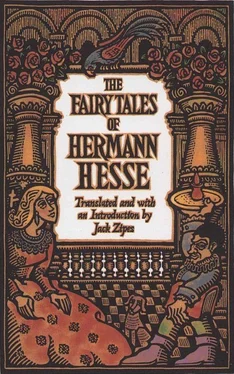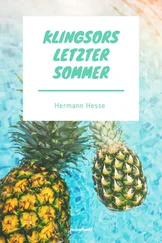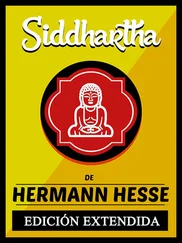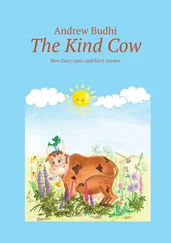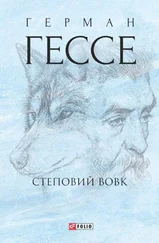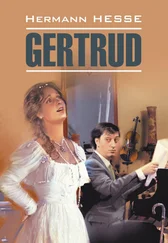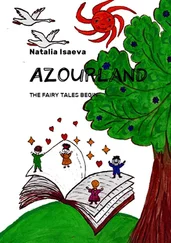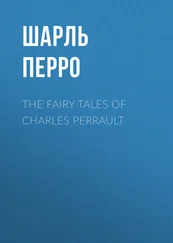Hermann Hesse - The Fairy Tales of Hermann Hesse
Здесь есть возможность читать онлайн «Hermann Hesse - The Fairy Tales of Hermann Hesse» весь текст электронной книги совершенно бесплатно (целиком полную версию без сокращений). В некоторых случаях можно слушать аудио, скачать через торрент в формате fb2 и присутствует краткое содержание. Год выпуска: 1995, ISBN: 1995, Издательство: Bantam Books, Жанр: Классическая проза, Сказка, на английском языке. Описание произведения, (предисловие) а так же отзывы посетителей доступны на портале библиотеки ЛибКат.
- Название:The Fairy Tales of Hermann Hesse
- Автор:
- Издательство:Bantam Books
- Жанр:
- Год:1995
- ISBN:9780553377767
- Рейтинг книги:5 / 5. Голосов: 1
-
Избранное:Добавить в избранное
- Отзывы:
-
Ваша оценка:
- 100
- 1
- 2
- 3
- 4
- 5
The Fairy Tales of Hermann Hesse: краткое содержание, описание и аннотация
Предлагаем к чтению аннотацию, описание, краткое содержание или предисловие (зависит от того, что написал сам автор книги «The Fairy Tales of Hermann Hesse»). Если вы не нашли необходимую информацию о книге — напишите в комментариях, мы постараемся отыскать её.
The Fairy Tales of Hermann Hesse — читать онлайн бесплатно полную книгу (весь текст) целиком
Ниже представлен текст книги, разбитый по страницам. Система сохранения места последней прочитанной страницы, позволяет с удобством читать онлайн бесплатно книгу «The Fairy Tales of Hermann Hesse», без необходимости каждый раз заново искать на чём Вы остановились. Поставьте закладку, и сможете в любой момент перейти на страницу, на которой закончили чтение.
Интервал:
Закладка:
But above all, he met the great individuals and heroes from all the different factions of vegetarianism. Sun-tanned men with long wavy hair and beards arrived in white robes and sandals, as if they had just stepped out of the Old Testament. Others wore sport clothes made out of bright linen. Some venerable men walked around naked with loincloths made of wool that they had woven themselves. Various groups and even organized clubs were formed. The pulpists met at certain places, the ascetic fasters at other spots, and the theosophists and sun-worshippers at yet others. A temple was constructed by the flowers of the American prophet Davis, while the neo-Swedenborgians made use of a hall for their religious services.
In the beginning Dr. Knoegle did in truth feel some embarrassment as he moved about in this strange crowd. He attended the lectures of a former teacher from Baden named Klaber, who instructed his listeners in pure Allemanian about the fate of Atlantis, and he stared at the Yogi Vishinanda, whose name was actually Beppo Cinari, and who after decades of effort had managed to reduce the rate of his heartbeat by about a third through his own willpower.
In Europe this colony would have left the impression of a madhouse or fantastic comedy set between real political and professional happenings. In Asia Minor, however, everything seemed quite reasonable and not at all impossible. Sometimes newcomers walked around with bright spiritual faces and expressed delight that their fondest dreams had been fulfilled. Others could be seen with tears of joy and flowers in their hands, greeting everyone they encountered with a kiss of peace.
The most striking group, however, was made up of the pure pulpists. They had waived their right to have a temple, house, and organization of any kind and showed no desire but to become more and more natural. As they themselves stated, they wanted “to come closer to the soil.” They lived in the open and ate only things that could be broken off trees and bushes. They completely disdained all other vegetarians, and one of them told Dr. Knoegle to his face that eating rice and bread was exactly the same disgusting thing as enjoying meat, and that there was no real difference between a so-called vegetarian who drank milk and any old drunk and toper.
Among the pulpists, the illustrious disciple Jonas towered above everyone else, for he was the most consistent and successful representative of this faction. To be sure, he wore a loincloth, but it was hardly distinguishable from his hairy brown body. He lived in a small wooded area, where he could be seen swinging through the branches with agility and quickness. His thumbs and large toes were in a miraculous process of reverting back to primitive form, and his mode of life and entire existence represented the most tenacious and successful return to nature that one could imagine. A few people made fun of him among themselves and called him the “gorilla,” Otherwise, Jonas enjoyed the admiration and respect of the entire province.
This great vegetarian had renounced the use of language. When his brother and sister followers discussed things at the edge of his woods, he would sometimes sit on a branch over their heads, grinning with encouragement or laughing with disapproval, but he himself never uttered a word. Instead, he sought through gestures to indicate that his language was the infallible language of nature and would later become the world language of all vegetarians and nature people. His closest friends were with him every day, enjoyed his lessons in the art of chewing and cracking nuts, and watched in awe as he progressively perfected himself. Yet they were worried because he supposedly was going to withdraw into the native wilderness of the mountains to be at one with nature, and this was to happen soon.
Some of the fanatics wanted to bestow divine honors on this remarkable being who had completed the circle of life and found his way back to the beginning point of human development. But on the morning when they went looking for him in his woods to honor him and begin the establishment of their cult with a song, the celebrated Jonas appeared on his favorite large branch, swung his detached loincloth derisively in the air, and threw hard pine cones at the worshippers.
Deep in his timid soul, Dr. Knoegle felt nothing but repulsion for Jonas the Perfect One, the “gorilla.” All that he had always held in the silent depths of his heart against the excesses of the vegetarian outlook and fanatical, crazy behavior was horrifyingly embodied in this character. Jonas seemed to crudely mock his own moderate vegetarianism, and Dr. Knoegle, the unassuming teacher, felt that in some way Jonas had insulted human dignity itself. In fact, Dr. Knoegle, who readily tolerated numerous people with different opinions from his, could not walk past the dwelling place of the Perfect One without feeling hate and rage. Likewise, the “gorilla,” who had observed all kinds of followers, admirers, and critics from his branch with equanimity, felt an increasing bestial bitterness toward this man, whose hate he had instinctively scented. Whenever the doctor happened to come near the woods, he would glare at the tree-dweller with reproachful, insulting glances, which Jonas answered with teeth-baring and angry hissing.
Dr. Knoegle had already decided to leave the province the following month and to return home. But one night, when there was a full moon, he took a walk and was drawn almost against his will near the woods. With sadness he thought of former times when he had still been a meat-eater and normal human being in full health, living among his kind. As he was recalling those more tranquil years, he spontaneously whistled an old student song.
All of a sudden Jonas broke out of the bushes, making a loud cracking sound, for he had been wildly aroused by the song. He stood threateningly in front of the walker, swinging a monstrous club. So bitter and enraged was the surprised doctor, however, that he did not take to his heels. Rather, he felt that the time had arrived to settle accounts with his enemy. Laughing grimly, he bowed and said with as much mockery and affront as he could express, “Permit me to introduce myself. I am Dr. Knoegle.”
Then the “gorilla” threw his club away with an angry cry, pounced on the weak doctor, and strangled him instantly with his terrible hands. Dr. Knoegle was found the next day. Many people suspected what had happened, but nobody dared to take action against the ape Jonas, who cracked his nuts calmly in the branches of his tree. The few friends that the stranger had made during his stay in paradise buried him nearby and placed a simple stone on his grave with the inscription: “Dr. Knoegle, Mixed Vegetarian from Germany.”

The Beautiful Dream
(1912)

When Martin Haberland, a high school student, died at the age of seventeen from pneumonia, everyone talked about him and his untimely death. In particular, they regretted that he had not been able to make something out of his abundant talents and to experience success.
It is true that I, too, felt sorry about the death of the handsome, talented young man, and I thought, with a certain amount of sorrow, how much enormous talent there must be in the world for nature simply to toss it away so arbitrarily! But nature could not care less what we think about it, and as far as talent is concerned, there is such an excess that our artists will soon become their own audiences, and audiences made up of ordinary people will no longer exist.
As a result, I cannot mourn the young man’s death the same way I might if he had been harmed and cruelly robbed of the best and beautiful things in the world that had been destined for him. Whoever has happily reached the age of seventeen in good health and with nice parents has the best part of his life behind him in many respects. If his life ended too early and did not assume the form of a Beethoven symphony because he had not endured much suffering or many harsh experiences or gone through wild phases, it could still be considered a small Haydn chamber concerto, and you cannot say such a thing about many people’s lives.
Читать дальшеИнтервал:
Закладка:
Похожие книги на «The Fairy Tales of Hermann Hesse»
Представляем Вашему вниманию похожие книги на «The Fairy Tales of Hermann Hesse» списком для выбора. Мы отобрали схожую по названию и смыслу литературу в надежде предоставить читателям больше вариантов отыскать новые, интересные, ещё непрочитанные произведения.
Обсуждение, отзывы о книге «The Fairy Tales of Hermann Hesse» и просто собственные мнения читателей. Оставьте ваши комментарии, напишите, что Вы думаете о произведении, его смысле или главных героях. Укажите что конкретно понравилось, а что нет, и почему Вы так считаете.
